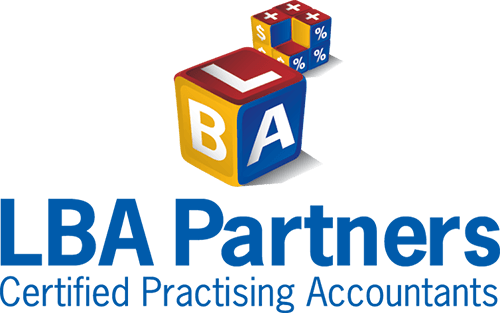Here's our latest newsletter, if you would like to follow up any of the information please contact Linda or Grahame
P r a c t i c e U p d a t e
February 2015
ATO data matching programs
Editor: The ATO is carrying out two new data matching programs to identify non-compliance with registration, lodgment, reporting and payment obligations, i.e., looking for tax avoiders.
Motor vehicles
The ATO has announced a new "Motor vehicle data matching program" to collect details of individuals or businesses that have purchased or acquired a vehicle costing $10,000 or more in the 2011/12 and the 2012/13 financial years.
It will acquire information from every State and Territory vehicle registration authority.
It is expected that records relating to approximately 2.8 million individuals will be matched.
Share transactions
The ATO has also announced a new "Share transactions data matching program" that will acquire details of share acquisitions and sales from 20 September 1985 to 30 June 2016 from:
- Link Market Services Limited;
- Computershare Limited;
- Australian Securities Exchange Limited;
- Boardroom Pty Ltd;
- Advanced Share Registry Services Pty Ltd; and
- Security Transfer Registrars Pty Ltd.
The type of data that the ATO will collect includes the name and address of the taxpayer, and the date, price and number of shares acquired or sold.
It estimates that more than 95 million records will be obtained, including the records for approximately 1.2 million individuals.
Editor: The fact that this program collects information back to 20 September 1985 raised concerns the ATO might amend assessments up to 30 years old!
However, the ATO has come out and said that it is only going back to when CGT was first introduced so that it can identify 'post-CGT shares' and calculate the cost base where shares have recently been sold (for example, if they were bought in 1986 and sold in 2014).
ATO focus on super obligations – child care, pubs and cleaning
Each year, the ATO identifies industries where employers are at a greater risk of not making super contributions for their eligible employees.
This year its focus is on:
- child care services;
- pubs, bars and taverns; and
- industrial cleaning industries.
Furthermore, the ATO stated that, in early 2015, it will write directly to employers in these industries to remind them of their super obligations.
It has also advised that it will be undertaking super obligation audits of these industries from July 2015.
The ATO reminds all taxpayers that they must:
- contribute at a rate of 9.5%;
- make contributions by the quarterly cut-off dates (i.e., 28 October, 28 January, 28 April, 28 July);
- pay super for eligible contractors, even if the contractor quotes an Australian Business Number (ABN); and
- give an employee's tax file number (TFN) to their super fund within 14 days of receiving it.
Editor: We've heard on the grapevine that the ATO may also be directly contacting the trustees of SMSFs (or directors of the corporate trustee).
If you receive a call from the ATO and you're at all uncomfortable answering their questions over the phone, feel free to tell them to call us instead, or (if they still insist on speaking to you) that you would like to speak them later (after speaking to us).
Travel allowance – deductions are not a foregone conclusion
Editor: A recent case, and the ATO's stance in relation to it, indicates that it is prepared to take a hard line on travel expense claims in relation to travel allowances paid to employee truck drivers.
Even though there is an exception to the substantiation rules for these sorts of expenses, (i.e., in terms of keeping receipts, etc.), the ATO looks like it may still expect truck drivers to be able to back up how many nights they were away, what they ate and where, and how they calculated the amount claimed. These sorts of claims are often quite large and have become a target for the ATO.
ATO recovers super from phoenix operators
The ATO says that it has used new powers known as Superannuation Guarantee Estimates (SGE) to recover $8 million in worker's superannuation from the operators of labour-hire companies which have engaged in 'phoenix behaviour'.
Editor: Phoenix behaviour involves the deliberate liquidation of companies to avoid paying superannuation obligations, as well as to avoid other tax liabilities, and to avoid paying creditors and suppliers.
In this case, the network of companies provided labour-hire services such as seasonal fruit picking and meat packing, and had been failing to pay workers their superannuation entitlements.
Single Touch Payroll
The Government has announced that it will simplify tax and superannuation reporting obligations through 'Single Touch Payroll'.
Under Single Touch Payroll, employers' accounting software will automatically report payroll information to the ATO when employees are paid.
This will eliminate the need for employers to report employee-related Pay As You Go Withholding (PAYGW) in their activity statements throughout the year, and employee payment summaries at the end of the year.
The Government stated that Single Touch Payroll will be available from July 2016, and transition arrangements will be the subject of consultation with the business community early in 2015.
Construction industry annual payments report
The ATO is writing to businesses in the building and construction industry that have not lodged their 'Taxable Payments Annual Report', which was due to be lodged by 21 July 2014.
Each year, businesses in the building and construction industry must complete the Taxable payments annual report to advise the ATO the amount they paid for building and construction services.
What are 'building and construction services'?
Editor: It is important to note that the definition of building and construction services is broad and covers a wide range of occupations and activities.
It includes services such as bricklaying, plumbing, etc. However, it also includes some activities that businesses may not be aware of, such as:
- architectural work (including drafting and design);
- cable laying;
- communications construction;
- decorating (including painting);
- engineering;
- installation of hard wired alarm systems;
- installation of solar devices;
- landscaping; and
- project management.
Editor: Clients with any concerns should contact us.
Please Note: Many of the comments in this publication are general in nature and anyone intending to apply the information to practical circumstances should seek professional advice to independently verify their interpretation and the information's applicability to their particular circumstances.



